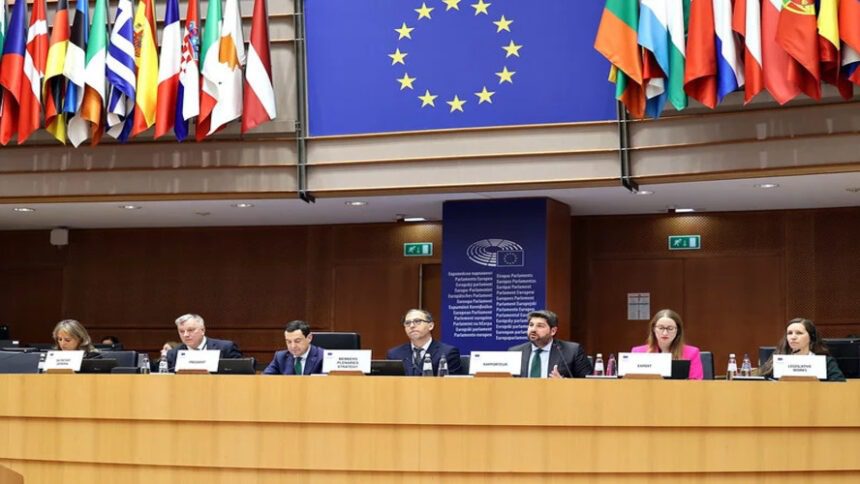By Martin Banks
The European Commission has signalled its intention to amend parts of its initial proposal for the long-term EU budget beyond 2027.
The move was discussed on Tuesday by regional and local leaders who gathered with members of the European Parliament to discuss their concerns and requests on the future of Cohesion Policy.
The meeting sent strong political messages ahead of the 18-19 December European Council meeting, when heads of state and government will discuss key aspects of the EU budget 2028-34, including Cohesion Policy.
Nearly 400 participants attended in person and online the high-level dialogue on the future of Cohesion Policy hosted in Brussels by the European Committee of the Regions (CoR) and co-organised with the Ministry of Development Funds and Regional Policy of Poland in the framework of the #CohesionAlliance.
The proposals of the European Commission on the future long-term EU budget 2028-34, the Multiannual Financial Framework (MFF), include major changes that affect the core of Cohesion Policy.
The event was opened by the Chair of the CoR Commission for territorial Cohesion Policy and EU budget (COTER), Vasco Alves Cordeiro (PT/PES), and the Undersecretary of State at the Ministry of Development Funds and Regional Policy of Poland, Monika Sikora.
It gave an opportunity to get a better understanding of the proposed changes and their potential impact on economic, social and territorial cohesion in the EU, as well as on the governance of the policy and the risk of future centralisation in the hands of national governments.
Among those who participated were the European Parliament’s co-rapporteurs for the post 2027 MFF, Siegried Muresan and Carla Tavares, the Czech Republic’s minister responsible for cohesion, Petr Kulhánek, and the secretary general of European Funds of Spain, Mercedes Caballero.
COTER Chair Cordeiro said: “We have never defended the status quo. Cohesion Policy must adapt, with clearer priorities and simpler tools. But renewal cannot come at the expense of the very principles that make the policy work.
“The current proposal does not serve our cities and regions, nor cohesion itself, nor the future of the European Union. What we need is a reform that reinforces partnership, territorial focus, and long-term investment, the foundations of a truly cohesive Union.”
Undersecretary Sikora stated: “We meet at a decisive moment for Europe. In the coming weeks, ahead of December’s European Council, crucial decisions will be taken. They will determine how Europe investments in development, resilience, and solidarity would look like in the next decade. Cohesion Policy has been one of Europe’s success stories. It has reduced disparities, empowered communities, supported green and digital transitions.
“Today – in the face of geopolitical uncertainty, and multiply challenges, also related with security of EU citizens – Europe and its regions need more, not less cohesion.
“Strong Cohesion Policy means a strong, modern and just Europe. Strong regions and local communities, working in partnership with the EU and Member States, are essential here.
“My message is clear: in the next programming period, we need an ambitious, fair, and robust Cohesion Policy, with regions fully involved in its design and implementation. Nothing about regions without the regions.”















Leave a comment